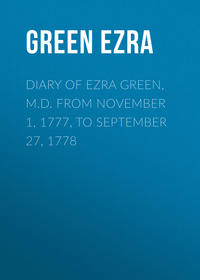Sadece Litres'te okuyun
Kitap dosya olarak indirilemez ancak uygulamamız üzerinden veya online olarak web sitemizden okunabilir.
Kitabı oku: «Diary of Ezra Green, M.D. from November 1, 1777, to September 27, 1778», sayfa 3
Bir şeyler ters gitti, lütfen daha sonra tekrar deneyin
Türler ve etiketler
Yaş sınırı:
12+Litres'teki yayın tarihi:
30 eylül 2017Hacim:
52 s. 5 illüstrasyonTelif hakkı:
Public Domain